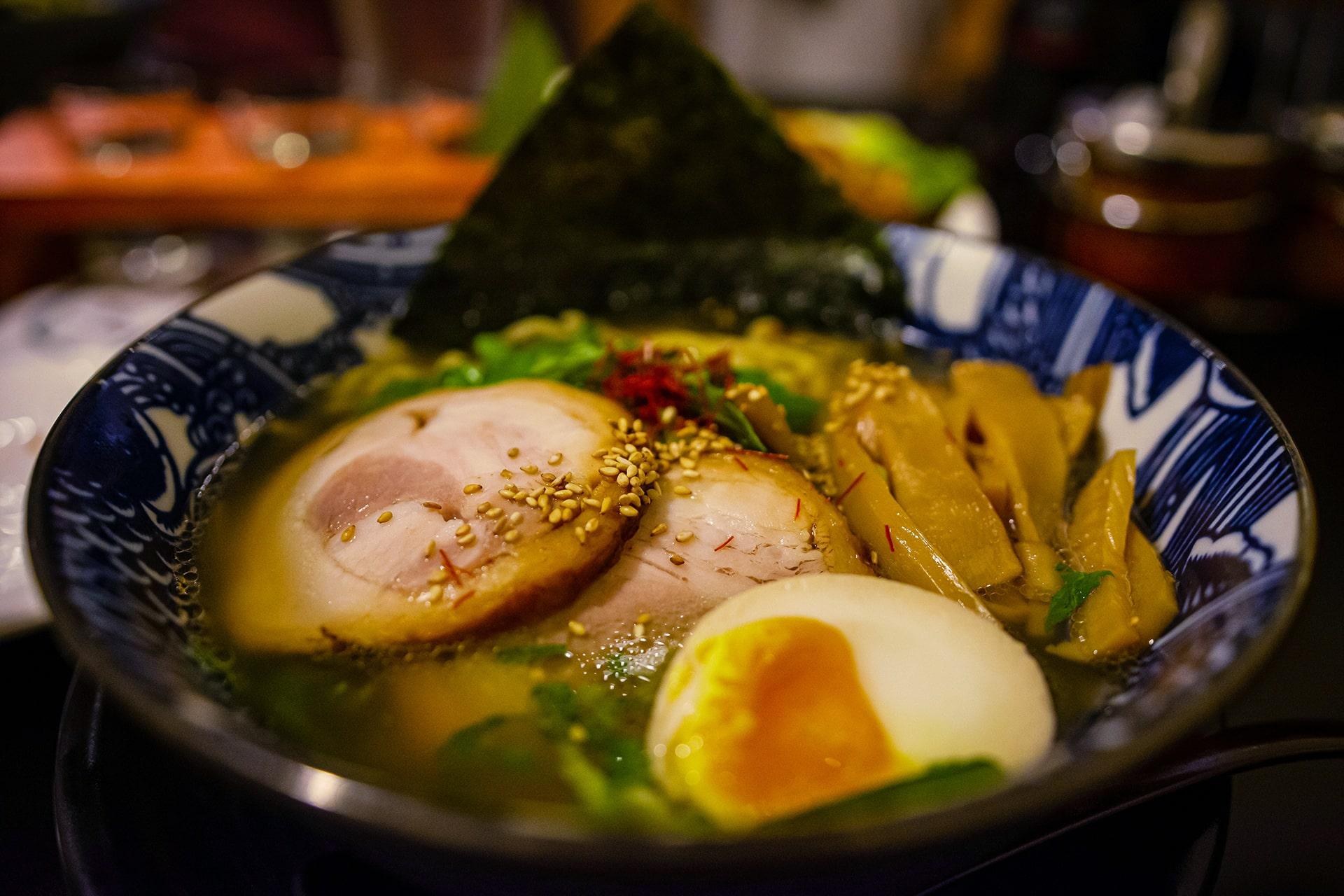Japanese noodle chain cooks strategy to “endure” Hong Kong downturn

Mita Seimenjo introduces its latest shop design and viral dish from Japan.
A retail downturn in Hong Kong has hit myriad businesses, including restaurant operators that have seen their clientele abandon them for trips across the border, where their cash goes further.
One noodle chain operator from Japan is striving to ride out the slump, in part, by emphasizing its “Japanese-ness” and replicating what is hot in its homeland.
“The situation seems to be a bit better now, but still has not returned to the level in the past,” said Kei Hasegawa, managing director of J-Foods Hong Kong. The company is a regional franchisee of Japan’s Mita Seimenjo, which serves “tsukemen” dipping noodles, and Tonkotsu 8, which offers ramen in a pork bone broth.
Hasegawa spoke with Nikkei Asia the day before a renovated Mita Seimenjo branch reopened on December 11 in the busy commercial district of Tsim Sha Tsui. It had been closed for a month and a half for a refurbishment to match “the latest store design of Mita’s outlets in Japan,” he said.
Despite coming at a cost, which Hasegawa did not disclose, “We thought it was worth it,” he said.
Like many other restaurant and catering businesses in Hong Kong, J-Foods is looking for ways to revitalize stagnant sales and foot traffic. Hasegawa admitted that business had been slow since around April.
Industry watchers blame the trend of more Hong Kongers heading to the neighboring mainland city of Shenzhen for shopping, dining and entertainment, taking a substantial amount of income away from local eateries and merchants. Across the border, they find cheaper prices and improved service. Plus, the Hong Kong dollar—which is pegged to the US dollar—has been stronger against the Chinese yuan.
Under the circumstances, J-Foods is trying to cope by taking advantage of widespread local appreciation for Japanese cuisine. The strategy, as he put it, is to “emphasize that we are serving things from Japan and putting that up front.”
This includes bringing over a menu item that went viral in Japan after it was introduced last fall: “tamago kake men” (raw egg noodles), or “TKM.” The operator hopes this will appeal to younger Hong Kongers who are keen to try new things.
Initially, TKM will be available on a trial basis for about a month. It is priced at HKD 96.8 (USD 12.4) with a mandatory 10% service charge—a typical price range in Hong Kong for a bowl of Japanese noodles, but about double what Mita outlets charge in Japan.
Despite the tough times, a range of other Japanese restaurants are opening in Hong Kong lately.
The maiden Hong Kong shop of Torikizoku, a Japanese izakaya-style tavern that focuses on chicken skewers, is set to open its doors on December 16.
Mita’s Tsim Sha Tsui branch also has a new cohabitant opening its first Hong Kong shop on the same premises on December 16: Teppei Syokudo, which mainly serves “kaisendon” bowls of seafood on rice.
The brand, which has five outlets in Singapore, is keeping prices low. The cheapest bowl will be “negitoro don.” Topped with raw tuna and scallions, each bowl will go for HKD 68 (USD 8.7), with no service charge. Teppei hopes to capture takeout demand at lunchtime.
Consumers’ reluctance to spend is reflected in the local real estate market.
JLL, a major real estate management company, said in a report on December 11 that a recovery in the city’s retail property sector “has been hindered by a decline in domestic consumption.” At the same time, there is polarization, with “leasing activity sustained in top tier shopping streets while lower tier streets struggle to attract tenants despite highly negotiable rents.”
Jeanette Chan, senior director of JLL’s retail segment in Hong Kong, said: “The market will face increased downward pressure,” with rents expected to fall by up to 5% on the year in 2025 in the city’s prime streets and shopping centers.
Chan foresees more “flexible” leasing options as landlords scramble to retain quality tenants.
While this may present some opportunities for restaurants and retailers, Hasegawa said he has no concrete plans to expand beyond two Mita, three Tonkotsu 8 outlets, and the brand-new Teppei at this point.
Confirming the polarization, he said that the rent for its Tsim Sha Tsui branch in the K-11 Art Mall, a retail-museum hybrid shopping center owned by New World Development remains unchanged while that of other suburban outlets has fallen.
For now, the mission is one of survival.
“I don’t expect the current severe situation to last forever, as I believe that the attractiveness of Hong Kong is still here,” Hasegawa stressed. But he added, “We may need to endure for around one more year.”
#JapaneseCuisine #HongKongEateries #Tsukemen #Tonkotsu #FoodInnovation
- Art
- Causes
- Crafts
- Dance
- Drinks
- Film
- Fitness
- Food
- Games
- Gardening
- Health
- Home
- Literature
- Music
- Networking
- Other
- Party
- Religion
- Shopping
- Sports
- Theater
- Wellness


